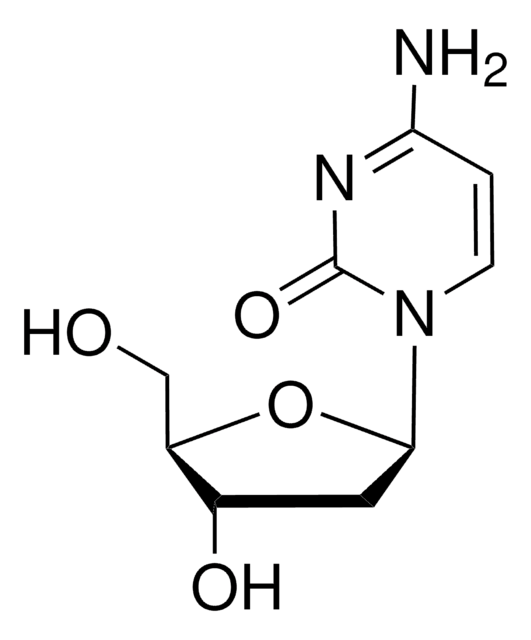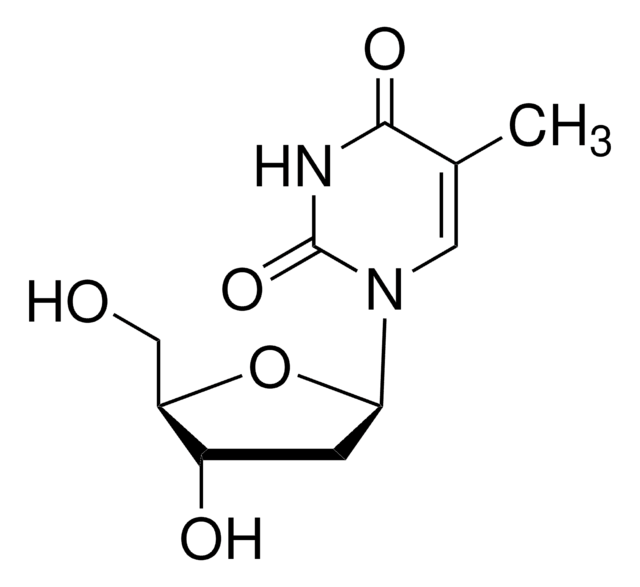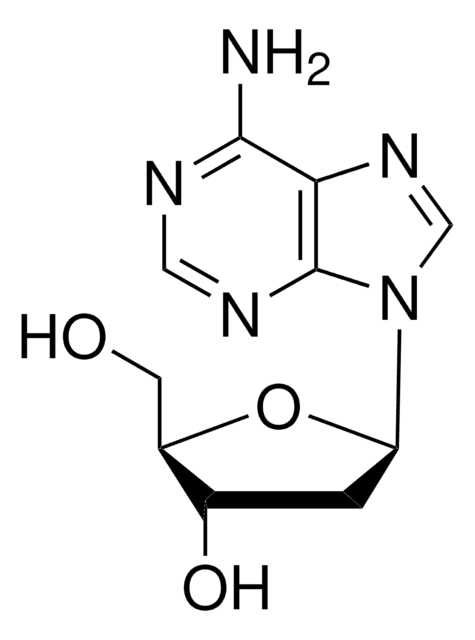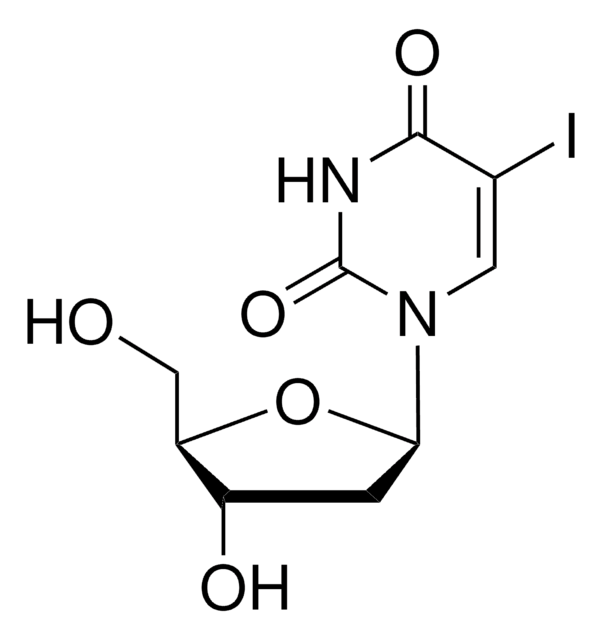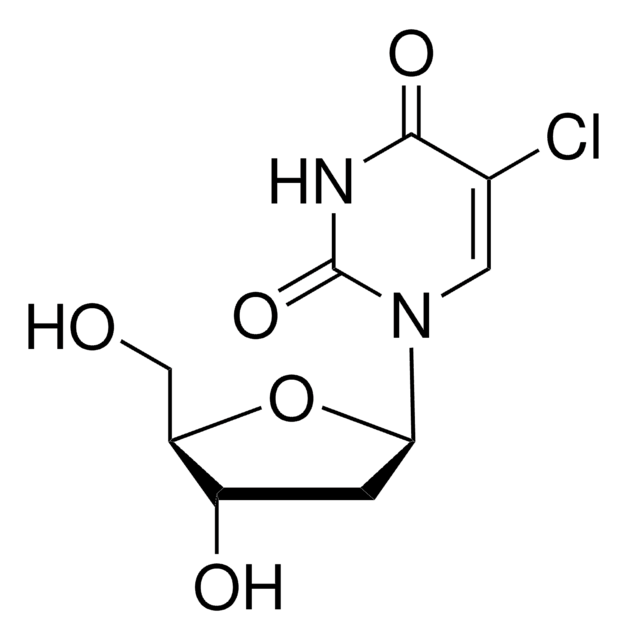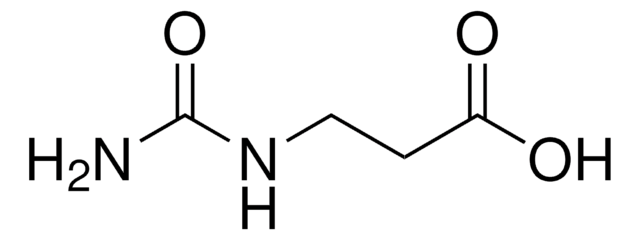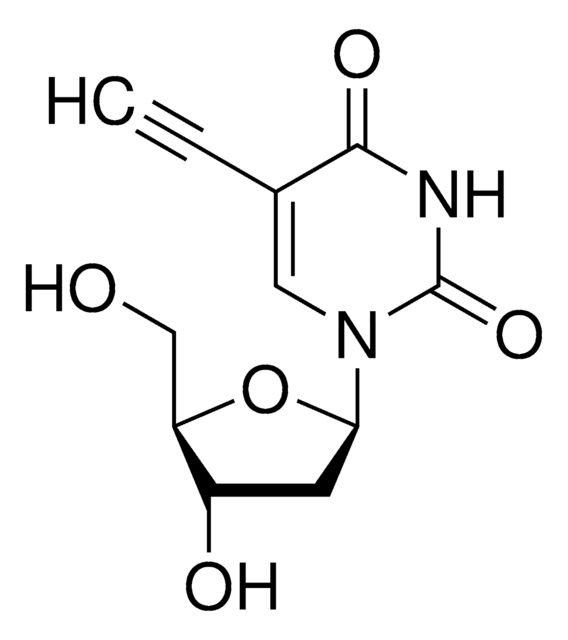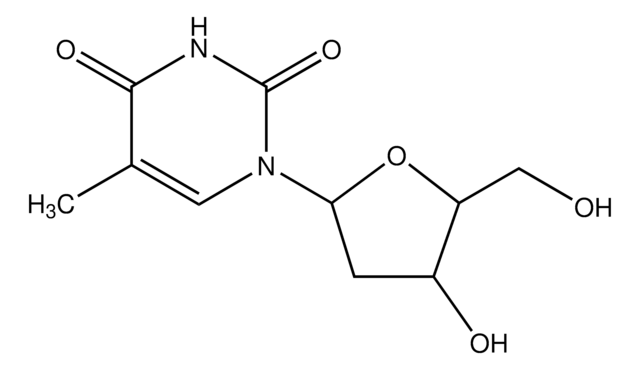D5412
2′-Deoxyuridine
≥98.5%
Synonym(s):
1-(2-Deoxy-β-D-ribofuranosyl)uracil, Uracil deoxyriboside
About This Item
Recommended Products
biological source
synthetic (organic)
Quality Level
Assay
≥98.5%
form
powder
impurities
Thymidine, free
solubility
water: 50 mg/mL, clear to slightly hazy, colorless to faintly yellow
SMILES string
OC[C@H]1O[C@H](C[C@@H]1O)N2C=CC(=O)NC2=O
InChI
1S/C9H12N2O5/c12-4-6-5(13)3-8(16-6)11-2-1-7(14)10-9(11)15/h1-2,5-6,8,12-13H,3-4H2,(H,10,14,15)/t5-,6+,8+/m0/s1
InChI key
MXHRCPNRJAMMIM-SHYZEUOFSA-N
Gene Information
mouse ... Slc29a1(63959)
Looking for similar products? Visit Product Comparison Guide
Related Categories
Application
- precursor of [3H]thymidine triphosphate (TTP) in place of thymidine to avoid a potential thymidine block in relative proliferation assays
- nucleoside supplement for cell cycle synchronization and DNA replication inhibition
- mitotic inhibitor in culture media to minimize the proliferation of glial cells
Biochem/physiol Actions
Storage Class Code
11 - Combustible Solids
WGK
WGK 3
Flash Point(F)
Not applicable
Flash Point(C)
Not applicable
Personal Protective Equipment
Certificates of Analysis (COA)
Search for Certificates of Analysis (COA) by entering the products Lot/Batch Number. Lot and Batch Numbers can be found on a product’s label following the words ‘Lot’ or ‘Batch’.
Already Own This Product?
Find documentation for the products that you have recently purchased in the Document Library.
Customers Also Viewed
Our team of scientists has experience in all areas of research including Life Science, Material Science, Chemical Synthesis, Chromatography, Analytical and many others.
Contact Technical Service